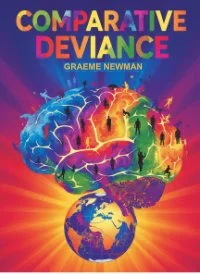By Frances Fenton.
“The present study is an attempt to investigate the question, How and to what extent do newspaper presentations of crime and other anti-social activities influence the growth of crime and other types of anti-social activity? That is, do people get the idea of, or the impulse to, committing criminal and other anti-social acts from the reading of such acts or similar acts in the newspapers? It is not necessary at this point to define criminal acts any further than to say that, although they vary somewhat in different states and at diflfer- ent times, penal codes adequately define them as "an act or omission to act forbidden by law and punishable upon conviction." The expression, "other anti-social acts" refers to activities not technically criminal, but perhaps immoral in character, and detrimental to group life, which have not yet, and may never, become incorporated in penal codes.”
Chicago: University of Chicago Press, 1900. 96p.



